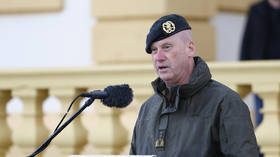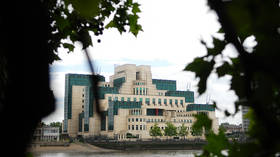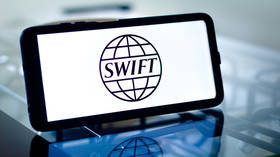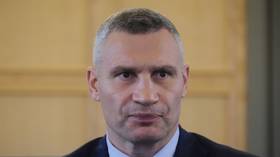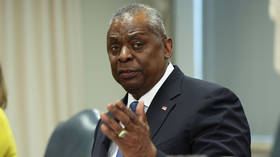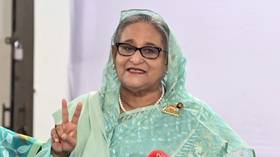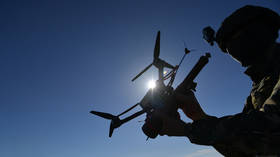Italy calls for 'European army'

Italian Foreign Minister Antonio Tajani has called on EU leaders to establish a common European army. Without a joint military, Tajani argues, the bloc cannot have a credible foreign policy.
“If we want to be bearers of peace in the world, we need a European army,” Tajani told Italy’s La Stampa newspaper on Sunday.
“This is a fundamental precondition for having an effective European foreign policy,” he continued, adding that in a world of “powerful players” like the US, Russia, and China, European citizens “can only be protected by something that already exists, and it’s called the European Union.”
Some 22 EU states are currently members of NATO, with the US-led pact effectively dictating security policy on the continent since the start of the Cold War. However, several EU leaders have floated the idea of pooling their militaries into a common force independent of US control in recent years.
French President Emmanuel Macron and former German Chancellor Angela Merkel were two of the most vocal proponents of this idea. Macron famously referred to NATO as “brain dead” in 2019, and urged European leaders to pursue a policy of “strategic autonomy” from Washington.
NATO Secretary General Jens Stoltenberg warned in 2021 that such a move would “weaken the connection between North America and Europe.” When talk of an independent European army first surfaced two decades earlier, then US Secretary of Defense William Cohen was more blunt, calling the idea “a threat to the very existence of NATO.”
The conflict in Ukraine has apparently tamped down discussion of European autonomy. Macron has since shifted his rhetoric on NATO and now supports the expansion of the US-led alliance. Merkel’s replacement, Olaf Scholz, still speaks of the need for “a more sovereign… European Union,” but has remained silent on the idea of building what Merkel called “a real, true European army.”
NATO’s Eastern European members, meanwhile, have come out as the most ardent supporters of the US overseeing security in Europe. After Poland took a $2 billion loan from Washington to modernize its military and welcomed the first permanent garrison of American troops to a base in Poznan, then-Defense Minister Mariusz Blaszczak said in November that “any competition between [NATO] and the EU when it comes to security is a very bad thing,” and that Warsaw had chosen a close partnership with the US over “some imaginary European army.”
Ultimately, the EU approved the creation of a common defense strategy last year, which provided for the creation of a 5,000-strong “rapid deployment” force – falling dramatically short of a common army.
